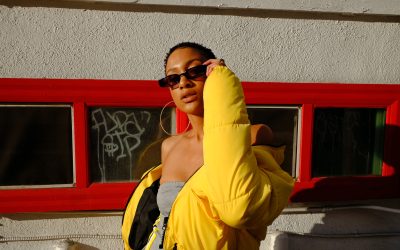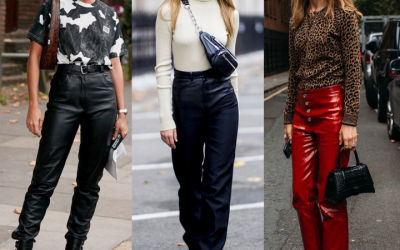It’s not always easy to know whether or not a fashion brand is ethical. Many brands claim to be sustainable and environmentally friendly, but how can you be sure?
In this article, we will discuss how we find out if a fashion brand is ethical or not and some telltale signs you can use to tell them apart from the posers.
We will cover several different ways to determine whether or not a company is sustainable: through their marketing, through their supply chain, and through their manufacturing practices.
Start With The Company Values
The first way to find out if a company is ethical or not is by looking at its stated values. Does the company have a page on its website dedicated to sustainability? Are they transparent about their manufacturing process? Do they use sustainable materials?
The quickest way to tell that a company doesn’t value ethical practices is if they exclude any mention of these in their promotional and internal documentation. And the reason is that claiming to be part of the ethical and sustainable fashion movement is an easy win for many brands.
A brand that doesn’t want to at least make the effort to convey its stance on supporting ethical fashion is probably not doing anything to make its business model more sustainable.
However, there’s a major caveat to this.
Promotional statements and premises about sustainability are just that: promises. Many brands talk the talk but refuse to put their money where their marketing is and actually make strides toward ethical practices.
So, while stated sustainability policies are a good place to start your research, they should never be the place where you stop.
Look For Third-party Certifications
The second way to find out if a company is ethical or not is by looking for third-party certifications.
There are several organizations that certify whether or not brands meet certain environmental and social standards. some of the most prominent ones are the Fairtrade Foundation, the Global Organic Textile Standard, and the Better Cotton Initiative.
If a brand is certified by any of these organizations, it’s a good sign that they’re at least trying to be more sustainable.
However, it’s important to keep in mind that these, and other sustainability certifications, are not perfect. Many have weak standards and are easily gamed by companies that want to appear more sustainable than they actually are.
For example, the Better Cotton Initiative works to improve the farming conditions of cotton workers and promote more environmentally friendly farming practices for cotton.
However, a BCI logo doesn’t mean the entire product you’re purchasing is made from cotton from BCI sources. Retailed can receive the BCI logo by sourcing at least 10% of the cotton from BCI initiative sources.
The Global Organic Textile Standard has also received criticism for having ambiguous wording in its standards documentation.
The bottom line is the same as from the previous section: trust but verify.
Ethical brands often seek out certifications, but receiving one isn’t a foolproof way to know that a brand is ethical.
Check The Brand’s Social Media Channels For Clues
The next way to find out if a brand is ethical or not is by looking at its social media channels.
As we’ve seen, many brands use sustainability as a marketing tool. And what better place to do that than on social media?
If you see a brand constantly talking about how sustainable they are but can’t find any evidence of this on their website or in their products, it’s probably because they’re all talk and no action.
Some brands will also post about the causes they support or the charitable work they do. This is another good way to get an idea of how much a company cares about being ethical and sustainable.
However, it’s important to keep in mind that many brands only support causes or do charitable work because they think it will make them look good.
Just because a brand posts about how much money they’ve donated to charity doesn’t mean they’re actually doing anything to make their business more sustainable.
The Transparency Index From Fashion Revolution
The Transparency Index is part of an effort to make fashion brands more accountable and transparent about their sustainability initiatives. It’s released every year and looks at the biggest fashion brands in the world examining things like their supply chains, human rights abuses, sustainability, and other ethical concerns.
You can use the Transparency Index to get an idea of how transparent a brand is about its sustainability initiatives and labor practices in other countries. However, it’s important to keep in mind that the index only looks at a limited number of brands and doesn’t include smaller brands.
It’s a great tool, but not perfect.
Contact The Brand Directly
The final way to find out if a brand is ethical or not is by contacting them directly.
Many brands have contact forms on their website where you can send them questions about their sustainability initiatives.
You can also email or call the company to ask them specific questions about how they operate ethically and sustainably.
This is the best way to get answers to your questions, but it’s also the most time-consuming.
It’s important to keep in mind that not all brands will be willing to talk about their sustainability initiatives. Some companies see it as competitive information or something they don’t want to share with the public.
If this is the case, there’s probably a reason why they’re being cagey.
Conclusion – How To Find Ethical Brands
It’s important to be an informed and conscientious consumer when it comes to fashion.
Unfortunately, sustainability is a complicated issue, and it can be difficult to determine what brands are truly ethical in their practices. That’s why it’s so important to do your research, and not take a company’s word for it.
By using independent third-party information sources, you can get a more accurate picture of how sustainable a brand really is. And if you have any questions or concerns, don’t hesitate to reach out to the company directly.
With a little effort, you can make sure that the clothes you wear are both stylish and ethically made.




